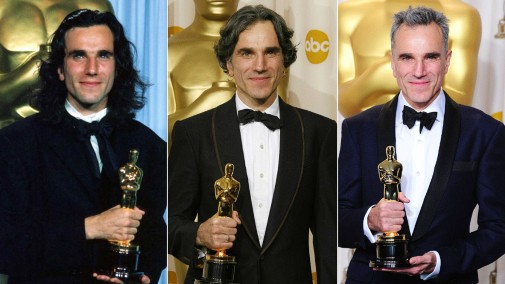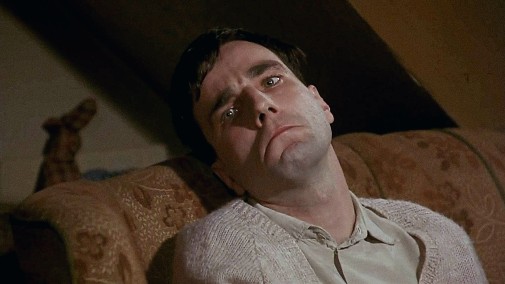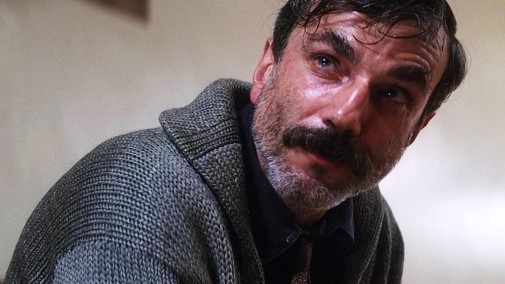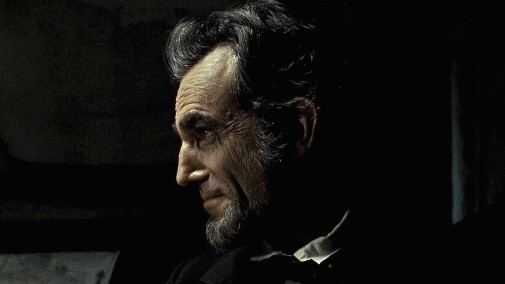
In the past 92 years, only a handful of performers have managed to win more than one Oscar. More than two is even rarer and more than three is a feat only ever achieved by Katharine Hepburn. In the relatively exclusive club of three-time Oscar-winning actors, we can find five names, three men and two women. Despite their golden prizes, perusing their winning performances can be a sad affair with most of them having at least one terrible victory in their collection. For Meryl Streep it's The Iron Lady, for Ingrid Bergman Anastasia and Murder on the Orient Express. Jack Nicholso's win for As Good As It Gets isn't very well-regarded and Walter Brennan's first two victories are rather dire.
Only one rises above the others as a perfect case of the Academy honoring an actor for the right performances. It's Daniel Day-Lewis, of course…

His first victory was as much a feat of great acting as of great campaigning. The much-hated Harvey Weinstein backed 1989's My Left Foot, making it the focus of one of his first and most aggressive Oscar campaigns. He even took the picture to Capitol Hill where Daniel Day-Lewis spoke in favor of the American Disabilities Act. As much as we despise the former head of Miramax and The Weinstein Company, his efforts were crucial for Day-Lewis to triumph over frontrunner Tom Cruise, who'd won the Globe for Born on the 4th of July. It also helped that, to play the lauded Irish painter with cerebral palsy Christy Brown, Daniel Day-Lewis spent months in research and lived in-character for the six weeks of shooting, breaking two ribs along the way. Such efforts were noted by critics, who showered the actor with many prizes.
None of that means the performance is devoid of merit. No matter the impact of campaigning in Daniel Day-Lewis' first Oscar victory, the actor's work is unimpeachable and deserving of Hollywood's most coveted honor. The role itself is insanely showy, but Day-Lewis never lets the spectacular physicality smother the psychology of his character. Every gesture and coughed up word, every spasm and frantic look, each inch of tense musculature is a brushstroke that lets us understand the man at the center of the story, painting a vivid picture of his frustration and joy, off-beat humor, wants, and heartbreaks. Watching Brown be rejected, first by a teenage crush then by an adult paramour, is a thing of lacerating beauty, symphonies of feeling playing in the actor's shining eyes.

18 years and three nominations later, Daniel Day-Lewis returned to the Oscar stage to collect his second prize. This time around, it wasn't for a sentimental biopic, but an austere art film directed by one of our greatest modern auteurs. Paul Thomas Anderson's 2007 grand opus There Will Be Blood is the American Dream twisted into something vile and rabid, hunger for money and power, oil and gold, corrupting the souls of all. Amid this misery, Daniel Day-Lewis anchors the film and gives it the shape of a portentous character study. He plays Daniel Plainview, an oilman, and a huckster through-and-through, always trying to sell something, be it ore or the illusion of family values drained of love.
Daniel Day-Lewis' work is a performance within a performance for Plainview is an actor of the sales pitch, always manipulating those he considers lesser. He rarely speaks his lines, preferring to intone them with a John Huston-like roar that sounds like honey laced with arsenic. Similarly, his face is a mask even more unchangeable in its fakeness. He only lets it slip once or twice and when it does, his expression sours into something ugly and dangerous. Just the fury during his baptismal humiliation would be enough to earn him the Oscar, but Day-Lewis manages to top himself with an astounding coda. In his final moments, Plainview lets any hint of fatherly love fall into a pit of resentment and his hatred for a fellow huckster, one that peddles God instead of oil, becomes full-on madness.

After the strangled speech of Brown and the demonic sound of Plainview, 2012's Lincoln plays with a shock of soft-spoken authority. Instead of taking the route of easy drama, the Irish actor underplays the American President to great effect. This version of Abraham Lincoln is a melancholic figure, a charismatic man who loves to tell stories at every opportunity, using them to cajole stubborn adversaries and to distract his audiences. Despite the notes of weary sadness hiding beneath the amiable facade, Day-Lewis never allows his character to turn into some sort of idealized saint. There's cunning in his behavior and a deliberate quality to the pauses he peppers throughout Tony Kushner's dialogue. He may be a good man, but he's also a master politician. It's a performance deserving of the Oscar, there's no doubt about that.
There Will be Blood is newly available on Netflix and you can find My Left Foot on HBO Now. Don't miss those Oscar-winning wonders.